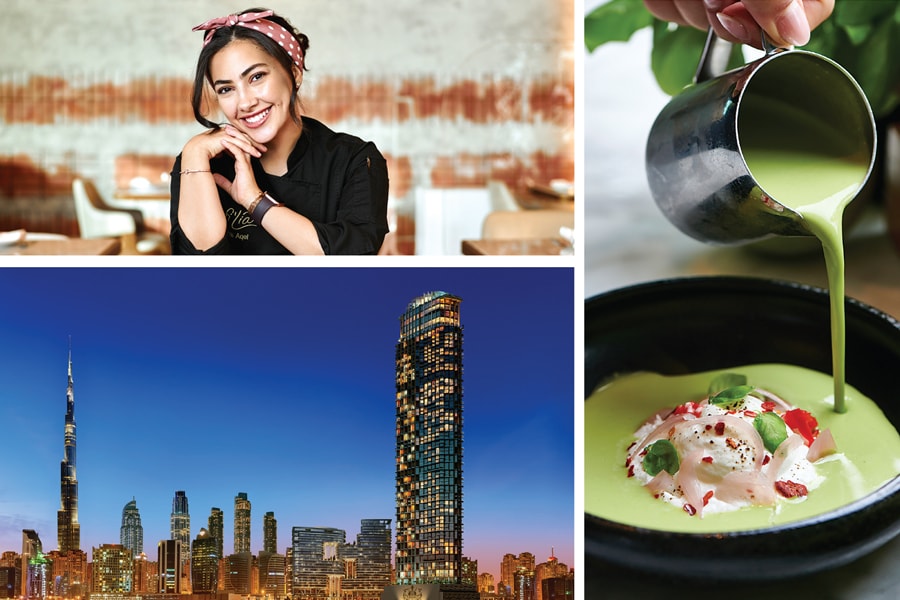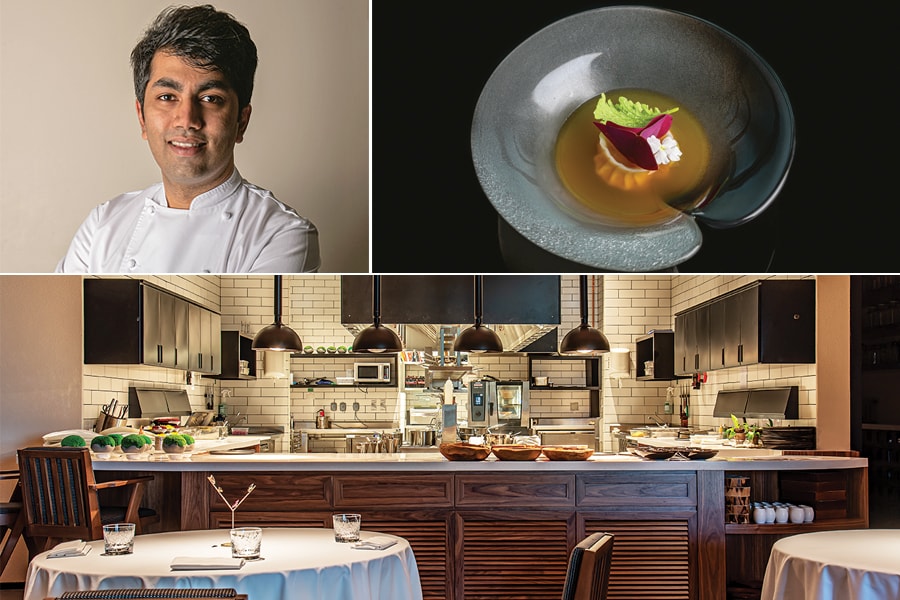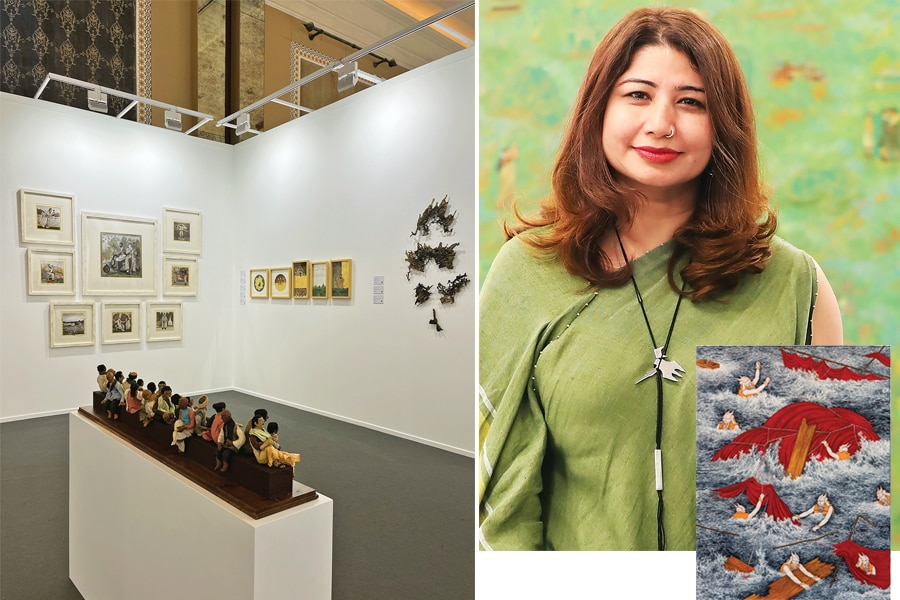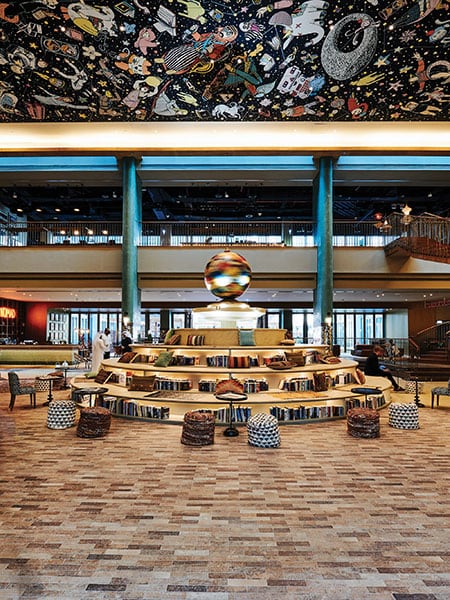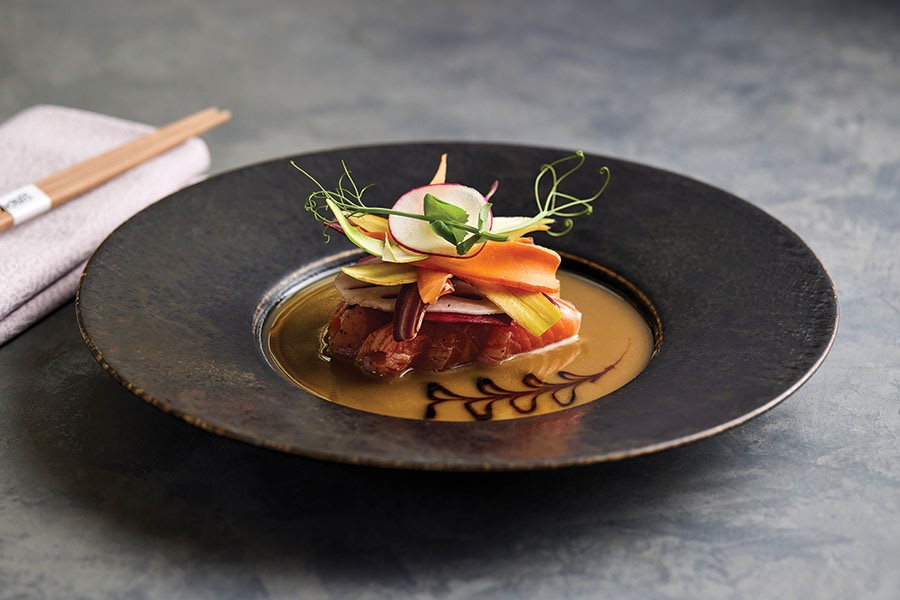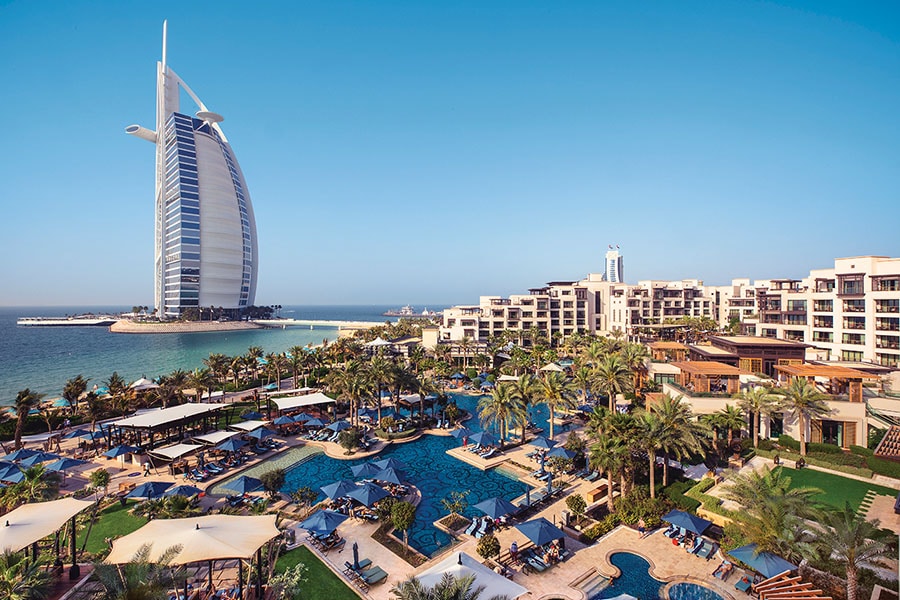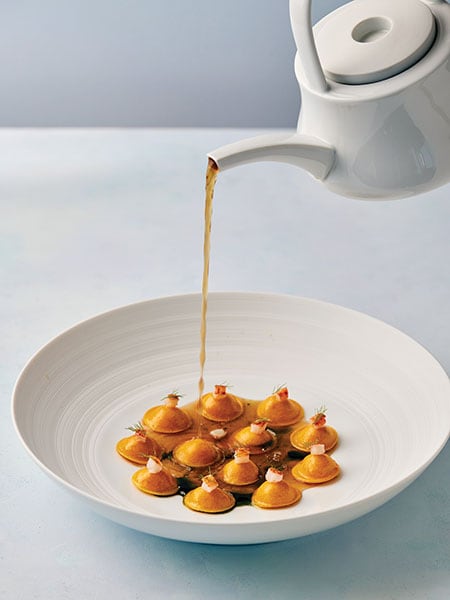
In Dubai, a new cultural revolution redefining art, fashion, food
Dubai in the post-pandemic world has found itself described as the 'new Casablanca', a safe zone where billionaires, financiers and the arty cosmopolitan elite of Western Europe, Russia, Hong Kong, California and India flocked. And it is ushering in a 'new chic' revolution that is redefining gastronomy, art, fashion and more
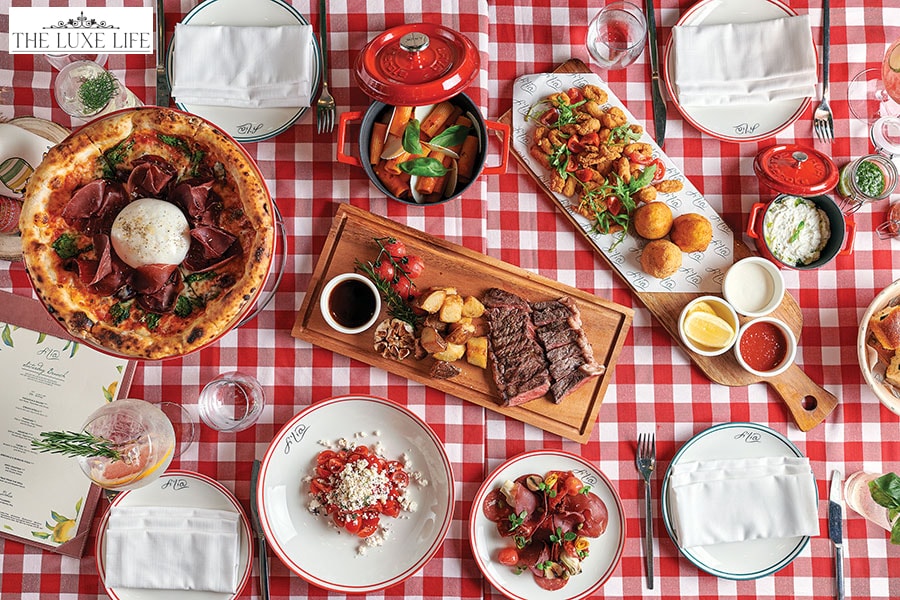 The Saturday brunch on Filia’s iconic terrace on the 70th floor
Image: Courtesy Jure Ursic / Fi’lia
The Saturday brunch on Filia’s iconic terrace on the 70th floor
Image: Courtesy Jure Ursic / Fi’lia
Perched on the 70th floor of one of Dubai’s newest and tallest skyscrapers, the SLS hotel—all of 75 floors—Fi’lia is an unusual restaurant in many ways. Yes, it is luxe, and the panoramic views of the Dubai Design district and of Downtown Dubai’s skyline are jaw dropping. But this bright, sunny space is surprisingly understated—the opposite of stereotypical Dubai OTT-ness.
For one, it’s a pizza oven (albeit state-of-the-art) that occupies pride of place in the restaurant. For another, the idea is to bowl you over with real food—Italian meets Arab—not spectacle.
In the land of Zumaesque restaurants, Fi’lia is one of those surprisingly trendy offerings that are playing up by dialling down in Dubai. It has just bagged a Bib Gourmand listing by the Michelin Guide, which debuted in Dubai in June. But Fi’lia, which means daughter in Italian, has been grabbing attention since it opened in mid-2021, as the Middle East’s first restaurant with an all-woman team in leadership roles.
Helmed by Palestinian-Jordanian executive chef Sara Aquel, 26, it front-foots gender parity in a region of stereotypes, but serves up more than political correctness. The menu is hearty-yet-innovative: Burrata Popolare (a take on a Massimo Bottura recipe), Feta al forno, pizza, gnocchi with caviar et al. Everything is made with vegetables, fruit and cheese sourced from local Emirati producers, in sync with global trends around local gastronomy, something Dubai, the land of foreign brands, was not big on at least till 2020.
Two years post that watershed moment, the idea of luxury in the city may be changing, as restaurants such as Fi’lia demonstrate, as also the emergence of a new pop culture driven by affluent pandemic tourists as well as immigrants in creative businesses who have settled down here since 2020, attracted by easy visas, safety, one of the most successful vaccination programmes in the world, and the fact that in the post-pandemic world, hybrid working is a given.
(This story appears in the 30 November, -0001 issue of Forbes India. To visit our Archives, click here.)



